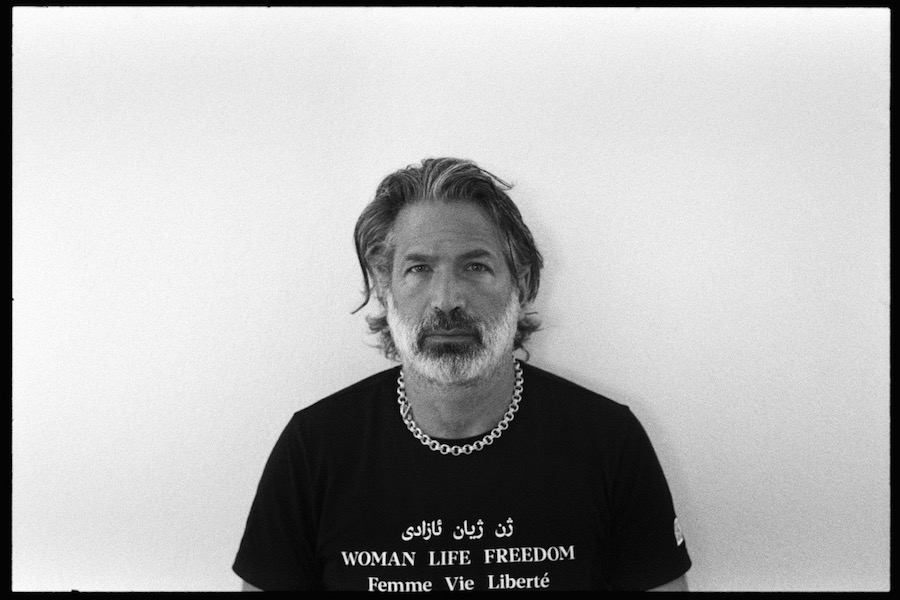Search
To search for an exact match, type the word or phrase you want in quotation marks.
A*DESK has been offering since 2002 contents about criticism and contemporary art. A*DESK has become consolidated thanks to all those who have believed in the project, all those who have followed us, debating, participating and collaborating. Many people have collaborated with A*DESK, and continue to do so. Their efforts, knowledge and belief in the project are what make it grow internationally. At A*DESK we have also generated work for over one hundred professionals in culture, from small collaborations with reviews and classes, to more prolonged and intense collaborations.
At A*DESK we believe in the need for free and universal access to culture and knowledge. We want to carry on being independent, remaining open to more ideas and opinions. If you believe in A*DESK, we need your backing to be able to continue. You can now participate in the project by supporting it. You can choose how much you want to contribute to the project.
You can decide how much you want to bring to the project.

During the change of centuries, social critic and sports enthusiast Max Nordau published an article in the Jewish Gymnastics Journal titled “Muscular Judaism”. Building upon his address at the Second Zionist Congress that took place just two years prior and carried the same name, Nordau has celebrated “a war-hardened, weapon happy Judaism” of the biblical age. Prophets and revolutionaries “who refused to know defeat” (Presner, 2007). Nordau had a clear goal in mind. Putting an end to the image of the frail and diasporic Jew was for him an ideological obligation. He believed in a rebranding of sorts; updating the weak as willing and able. From his wishful thinking, compounded with the reduction of millions into dust during the Holocaust, Muscular Judaism mutated further into a set of pathologies. No longer a form of corporal self affirmation, but a bludgeon against others. Becoming and being perceived as powerful, as well as exercising violence, is no different than self actualisation in such a world view. Just like the glimmering image that Nordau has envisioned decades ago, Israeli soldiers who have committed atrocities during the Nakba, as well as in all the other succeeding regional wars that catastrophe provoked, have been, for the most part, hailed as heroes in their own nation state. Toned combatants imagined as elegant and handsome. When coupled with a state controlled media landscape, Muscular Judaism adopted a crucial visual function. Robust bodies were in themselves not enough in manufacturing consent. When looking at images and videos from Gaza, it is clear to see how Muscular Judaism transpired into hubris of titanic proportions.

Image from “Short-Term, But Long-Term” by Federico Vespignani, a book made up of more than 500 photographs posted on dating apps by Israeli soldiers from the Gaza Strip in 2024
Within this supremacist worldview, the glorification of some bodies depends on the destruction of other bodies. While the sight of harmed Arab bodies are unattractive and are at times even avoided because of that, aggressors are presented as virile and attractive. Desirable, even. Mashed with the crude logic of late capitalism and its marketization of the self, Muscular Judaism and its role within the Gazan Genocide has also seeped into social media platforms. Within the past twenty months, Tinder profiles of Israeli soldiers are coming into abominable view. Images of troops grasping onto long and thick assault rifles opposite decimated housing blocks who are “looking for long-term partners”. Freudian psychoanalysis of such phallic sights is almost too obvious. But what is worth highlighting once more is how the submission of the other attests to one’s own machismo. How stripping down cities and populations is a sure promise to stripping down pants during a first date in such a militarized culture. How violence is not too different from what Eva Illouz and Dana Kaplan designated as “sexual capital”. Jumbling sex with violence has taken another horrid twist. When not occupied with presenting their own bodies as triumphant and accomplished, Israeli soldiers were hard at work mocking Palestinian women. Posting photographs of them wearing intimate garments found in rubbled apartments. Laughing when wearing undies over their tactical uniform. What can we discern from this form of harassment, broadcasted far and wide? For starters, one of the chief goals of occupation is the complete and utter obliteration of private life. Humiliation is created inside Palestinian communities when soldiers make their presence felt within them. Furthermore, this harassment is feeding into the paranoia over suspicious palestinian bodies that began with the suicide bombers of the nineties, perpetual satellite surveillance, videotaped monitoring systems and the scrutinizing observation of watchtowers have all, in the end, lead to this. Undressing the other becomes a supposed security concern. But on a more patriarchal level, documentation of armed men degrading the bodies of women for all to see should be called what it is: performative rape.

Israeli soldiers photographed with lingerie of Palestinian women in Gaza. Photo: Social Media
Mockeries of such kind almost appear to correlate with the looks of someone else. Wearing the underwear of nameless women as a spectacle. Donning the wedding dress of a once loved someone. Placing the panties of a stranger above combative gear in the hopes of being the hilarious one to the other guys in the squad and the friends back home. Mockeries are then an abusive exaggeration done for comedic sake that attempt to make an amusing claim at the expense of someone else. Most of the time, mockers ridicule the qualities that people cannot change about themselves; urging to uglify their subjects. Not for a lack of reason. Looks are one of the prominent indications of our socioeconomic backgrounds and are therefore particularly common subjects of harm. Be it our clothing, body parts, skin color or bone structure, appearances are bits of information about who we are or how we present to others that we provide to anyone we come across with, and that of course includes potential abusers. Be it bullies at high school or soldiers committing a genocide, mockers tend to pick on the physical traits of others and then proceed to blow them out of all proportion because it is that simple. Doing so is a way of stirring up a topic that feels personal
to those being laughed at, while still avoiding all meaningful knowledge of who they really are.
Unlike other forms of abuse which intend to create a clear distinction between abuser and the abused, mockery is unique in that it usually assumes the role of the subjugated person. Like images of the supremacist crossdressing performances in Gaza, the theatrical action of imitation splinters the self into a few personas, which thrive from their dissonance between one another. Projection of this sort clears a path for abusers to unleash their carnal desires by pretending that they are not their own. Mimicking the way that people walk, talk or dress means to use them as the social scapegoat of disclosed mental cravings.

Maxim Magazine and the Israeli Consulate in New York launching the 2007 photo spread ‘Women of the Israel Defense Forces’. This invitation in particular features Miss Israel 2004, Gal Gadot
Muscular Judaism is not reserved to men alone. In the early aughts, Israeli authorities realized that their state has a public relations issue with American men. Given that, the Foreign Ministry joined forces with the Ministry of Tourism and arranged a special issue for Maxim Magazine (Boyer, 2007). David Saranga, the consul for media and public affairs at Israel’s consulate in New York, has described the initiative as “a Trojan horse” that presents “Israel as a modern country with nice beaches and pretty women” (Keinon, 2007). What was described as “Bikini Diplomacy” was a method of making all Israeli bodies as appealing, and therefore worth preserving at all costs. “They’re drop-dead gorgeous and can take apart an Uzi in seconds” stated the Maxim cover. “Are the women of the Israeli Defense Forces the world’s sexiest soldiers?”

Women of the Israel Defense Forces. Photo: Social Media
Nowadays, TikTok and Instagram are brimming with self initiated and commissioned videos of attractive gun-holding female soldiers; girlbossing war crimes. Making libidinal desire inseparable from violent causes, modeling agencies such as Alpha Gun Angels have been an indispensable asset in legitimizing Israeli geopolitical interests as well as its firearms industries (Goodfriend, 2019). But ever since Palestinian living conditions have become undeniable, marketing Muscular Judaism had to change once more. Bikinis are now traded for locked and loaded uniforms. Under the auspice of selling sex, genocide is whitewashed. What we focus on still are the able bodied. Not the blindfolded, handcuffed and unattractive ones.
Parts of this article were featured as an introduction to the book Short-term, but long-term by Federico Vespignani (Debatable Publishing, 2024).
(Featured image: Israeli soldiers photographed with clothes of Palestinian women in Gaza. Photo: Social Media)

Adam Broomberg (b. 1970, Johannesburg) is an artist, activist and educator. He currently lives and works in Berlin. He is professor of Photography at Istituto Superiore per le Industrie Artistiche (ISIA) di Urbino and Practice supervisor on the MA in Photography & Society at The Royal Academy of Art (KABK), The Hague. His most recent work “Anchor in the Landscape” a large-format photographic survey of olive trees in Occupied Palestine was published by MACK books and exhibited at the 60th edition of La Biennale di Venezia.

Ido Nahari is a writer and researcher currently pursuing his doctorate in sociology. Previously an editor for the street newspaper Arts of the Working Class, his writing has appeared in numerous journals and magazines. He has lectured in various museums and academic institutions across the United States and Europe.
"A desk is a dangerous place from which to watch the world" (John Le Carré)